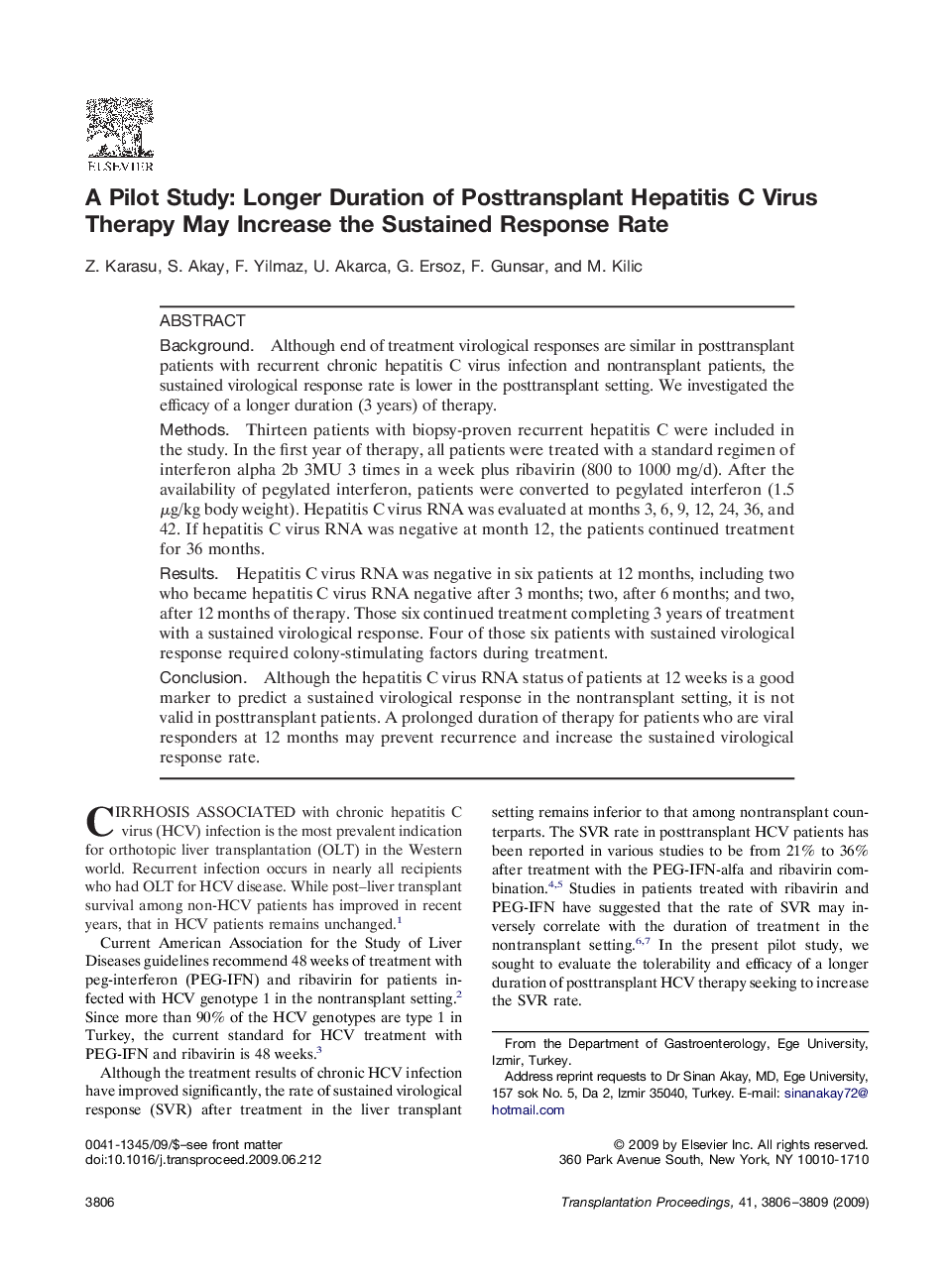| Article ID | Journal | Published Year | Pages | File Type |
|---|---|---|---|---|
| 4261248 | Transplantation Proceedings | 2009 | 4 Pages |
BackgroundAlthough end of treatment virological responses are similar in posttransplant patients with recurrent chronic hepatitis C virus infection and nontransplant patients, the sustained virological response rate is lower in the posttransplant setting. We investigated the efficacy of a longer duration (3 years) of therapy.MethodsThirteen patients with biopsy-proven recurrent hepatitis C were included in the study. In the first year of therapy, all patients were treated with a standard regimen of interferon alpha 2b 3MU 3 times in a week plus ribavirin (800 to 1000 mg/d). After the availability of pegylated interferon, patients were converted to pegylated interferon (1.5 μg/kg body weight). Hepatitis C virus RNA was evaluated at months 3, 6, 9, 12, 24, 36, and 42. If hepatitis C virus RNA was negative at month 12, the patients continued treatment for 36 months.ResultsHepatitis C virus RNA was negative in six patients at 12 months, including two who became hepatitis C virus RNA negative after 3 months; two, after 6 months; and two, after 12 months of therapy. Those six continued treatment completing 3 years of treatment with a sustained virological response. Four of those six patients with sustained virological response required colony-stimulating factors during treatment.ConclusionAlthough the hepatitis C virus RNA status of patients at 12 weeks is a good marker to predict a sustained virological response in the nontransplant setting, it is not valid in posttransplant patients. A prolonged duration of therapy for patients who are viral responders at 12 months may prevent recurrence and increase the sustained virological response rate.
